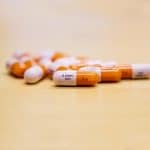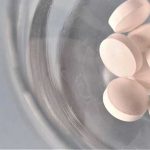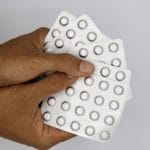- What Is Dexedrine?
- Side-Effects Of Dexedrine
- Dexedrine Abuse
- Warning Signs Of Dexedrine Addiction
- Dexedrine Addiction Treatment
- FAQs
Dexedrine is the brand name for dextroamphetamine, a stimulant drug that causes increased energy, focus, and attention. Dexedrine is most commonly used in the treatment of attention-deficit hyperactivity disorder (ADHD) and narcolepsy.
Although Dexedrine can be safe when used properly, it is commonly abused for its stimulant effects. Stimulant abuse increases the risk of serious heart problems, dependence, and addiction.
If you suspect yourself or a loved one has a Dexedrine addiction, a professional rehab center can help you recover.
What Is Dexedrine?
Dexedrine is a prescription stimulant that works similarly to other ADHD medications to improve restlessness, inattention, and impulsivity. It can also be helpful in treating narcolepsy, which causes periods of excessive daytime fatigue.
Additional prescription stimulant drugs include:
- Ritalin (methylphenidate)
- Concerta (methylphenidate)
- Adderall (amphetamine/dextroamphetamine)
- Focalin (dexmethylphenidate)
Side-Effects Of Dexedrine
Dexedrine can be prescribed as a liquid, immediate-release tablet, or extended-release capsule. Immediate-release tablets work quickly but may need to be taken multiple times a day. Extended-release Dexedrine capsules can be taken once a day and the effects last several hours.
All formulations of Dexedrine increase activity in the central nervous system, which can raise blood pressure, heart rate, and body temperature. Dexedrine also increases production of dopamine, a neurotransmitter associated with pleasure and reward.
Dexedrine side effects may include:
- dry mouth
- loss of appetite
- weight loss
- irritability
- difficulty sleeping
- anxiety
- irritability
- high blood pressure
- irregular heartbeat
Dexedrine Overdose
Taking high doses of Dexedrine or mixing it with other stimulants increases the risk of a drug overdose. Heavy use can lead to serious side-effects, including psychosis, hallucinations, delusions, and paranoia.
In severe cases, Dexedrine abuse can cause cardiovascular problems, including heart attack, seizures, and sudden death. If you think someone may be experiencing a stimulant overdose, please seek medical attention immediately.
Dexedrine Abuse
Dexedrine is often abused by college students or adults to boost productivity and increase energy.
However, Dexedrine abuse is dangerous and increases the risk of long-term health problems and overdose. Taking Dexedrine in any manner outside of its approved medical use is considered drug abuse.
Substance abuse may include:
- taking someone else’s prescription
- taking a higher dose than prescribed
- mixing dexedrine with other drugs to increase its effects
- crushing, snorting, or injecting Dexedrine
Dexedrine Dependence & Withdrawal
Long-term Dexedrine abuse may lead to a physical dependence, which means your body relies on the drug to function.
If you stop taking stimulants, you may experience withdrawal symptoms. Dexedrine withdrawal is not life-threatening but symptoms may require professional treatment.
Symptoms of Dexedrine withdrawal include:
- fatigue
- difficulty sleeping
- increased appetite
- anxiety
- depression
People who experience severe withdrawal symptoms may have suicidal thoughts or paranoia. If you or a loved one is experiencing severe withdrawal symptoms, please reach out for help.
Warning Signs Of Dexedrine Addiction
Dexedrine is a schedule II controlled substance, which means it has a high potential for abuse, dependence, and addiction.
Chemical changes in the brain can occur after long-term use that make it difficult to control stimulant use and stop on your own. If you are struggling with substance abuse issues, it can be helpful to learn the common addiction warning signs.
Warning signs of drug addiction can include:
- intense cravings and a loss of control over drug use
- unable to stop Dexedrine use
- needing higher doses to achieve the same effects
- isolating from friends, family, and responsibilities
- continued use, despite health and social harms
- using stimulants in high risk situations
Dexedrine Addiction Treatment
If you identify with the warning signs of addiction, it’s important to seek treatment as soon as possible.
Addiction, also known as a substance use disorder (SUD), can contribute to long-term health issues, increases the risk of overdose, and interferes with overall functioning and well-being.
Most addiction treatment centers offer the following levels of care:
Detox
A medical detox program occurs in a supervised environment to recover from the effects of stimulant withdrawal. During detoxification, you will be monitored around-the-clock by healthcare professionals. If necessary, you may receive medication to treat severe symptoms.
Inpatient Rehab
An inpatient rehab center is a highly structured program with 24/7 supervision and a daily schedule tailored to your individual needs. Inpatient rehab is the most intensive form of treatment and allows you to recover away from distractions.
Outpatient Rehab
Outpatient treatment varies in intensity but may require you to travel to the treatment center several times a week. Depending on your needs, you may be involved in an intensive outpatient program (IOP), partial hospitalization program (PHP), or outpatient counseling.
Behavioral Therapy
Behavioral therapy helps you learn to identify and change unhealthy behaviors, including compulsive drug use. Behavioral therapy, including cognitive-behavioral therapy, is one of the most effective treatment options for stimulant addiction.
Northeast Addictions Treatment Center offers a variety of outpatient treatment programs for stimulant addiction. If you would like more information about treatment options, please reach out to a treatment provider today.
FAQs
How Long Does Dexedrine Stay In Your System?
Dexedrine immediate-release tablets provide effects for around 2 hours, last in the body for longer than two days, but are only detectable in drug tests for a day or two after your last use.
Learn more about How Long Dexedrine Stays In Your System?
Is Dexedrine A Controlled Substance?
Yes, Dexedrine is a controlled substance. The DEA classifies it as a schedule II controlled substance due to its high potential for abuse and dependence.
To learn more, read Is Dexedrine A Controlled Substance?
Sources
Written by
Northeast Addition Editorial Team
©2024 Northeast Addition Center | All Rights Reserved
This page does not provide medical advice.





